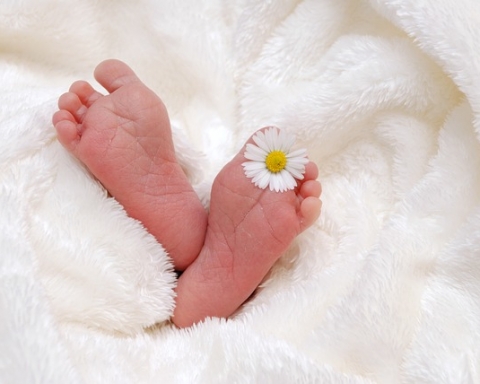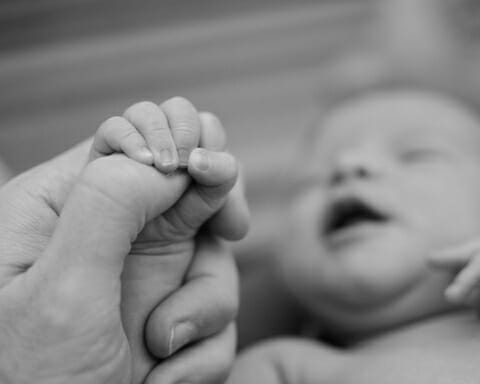Babies are vulnerable, and they rely on their parents for comfort and to have their needs met. Whenever babies feel distressed, they cry. Prolonged crying spells not only make the parents feel helpless, but they also frustrate everyone. It takes a lot of trial and error as well as positive parenting solutions to figure out why a baby is crying and how to soothe it.
Most parents learn to distinguish the meaning of their infant’s cries within 2 weeks of birth and respond accordingly. —Researchers at Case Western Reserve University, Ohio, USA
The idea that babies manipulate their parents through crying is incorrect because manipulative thinking patterns are nonexistent in babies in the first six months.
Research has shown that “Rather than spoiling the infant, answering his cry each and every time teaches the infant that his needs will be met.” With experience, most parents learn to understand their babies’ signals of distress and to respond to them appropriately.
Why Do Babies Cry?
Contrary to what some parents may assume, crying is not a way for babies to gain attention. Research indicates that “The cry is one of the most potent distress signals the infant offers. It is designed to elicit a maternal response that will change the infant’s physiologic condition or provide caregiving.”
In other words, crying is the only way babies can communicate distress or need. Once they grow up, they find other ways to communicate their needs, such as eye contact, body language, baby language, and gestures. Meanwhile, babies use crying to let their parents know that they need something.
Positive parenting solutions can help stressed-out parents soothe their babies quickly. Here are some possible reasons why a baby might be crying and how to handle these cues:
Hunger
A newborn’s stomach is tiny and empties very quickly. Breast milk is thin and digests rapidly, so babies need to be fed often (every hour or two). This is also known as on-demand feeding. Compared to breast milk, formula milk is thicker in consistency and takes more time to digest. So, a formula-fed baby needs to be fed less often (every two to three hours). However, some babies may demand formula milk more often and should be fed accordingly.
Need for Comfort
After leaving the womb, babies may have difficulty adjusting to their surroundings. Therefore, they find the sight, sound, taste, smell, and touch of their mothers very soothing. Holding babies closely, nursing, rocking, or singing a lullaby can soothe crying babies quickly. Many babies are also soothed by white noise because it reminds them of the sounds they used to hear in the womb. Comforting a restless baby is one of many positive parenting solutions.
Being Too Hot or Too Cold
Just like adults, babies need to be at a comfortable temperature. Eighteen degrees Celsius is considered a comfortable environmental temperature for babies. The best way to check if a baby is too hot or too cold is to feel the stomach. If the baby feels cold, add an extra layer of clothing, and if the baby feels hot, remove a layer. The general rule is that a baby should wear one more layer of clothing than adults in the same environment.
Having a Dirty Diaper
A slightly wet diaper usually doesn’t bother a baby; however, if a diaper is full, it aggravates the baby and makes it cry. A poopy diaper needs to be changed immediately so that it doesn’t irritate the baby’s sensitive skin. A diaper rash can also add to the baby’s discomfort and make it cry.
Gas or Colic
Stomach issues can be as painful for a baby as they are for an adult; however, babies are unable to use the same methods of relief. Gassy or colicky babies can cry for hours if the condition persists. Simple flatulence can be resolved by burping the baby after every feeding or giving the baby gripe water. However, colic is far more difficult to deal with. Colic goes away on its own once the baby’s digestion system matures.
Fever or Teething
Fever and teething are some other health issues that can lead to incessant crying. According to research, “In sick infants, crying frequency is abnormal, usually increasing, especially in infants with diseases affecting the central nervous system.”
If the baby has a fever, parents should always consult a doctor before using any kind of medication. In addition, babies who are teething become restless long before a tooth appears. If parents suspect that their baby is teething, they should try massaging the baby’s gums with a finger or let the baby bite on a teething ring.
Tiredness
Babies find long trips or long visits from guests pretty tiring even if they aren’t too physically active. They cry to let their caregivers know that they have had enough. Overstimulated or overtired babies have a harder time falling asleep. Signals such as yawning, whimpering, quietness, and staring into space are all indications that babies have had enough and need to rest.
Positive parenting solutions require that parents pay attention to the baby’s cues and respond accordingly. Research has proven that “When parents have been taught to answer cries swiftly, consistently, and completely, infant crying has been reduced by 60 percent.”

References
- Ludington-Hoe, Susan, Xiaomei Cong, and Fariba Hashemi. “Infant Crying: Nature, Physiologic Consequences, and Select Interventions.” Neonatal Network 21, no. 2 (2002): 29–36. Retrieved from http://www.ingentaconnect.com
- Dihigo, Sharolyn K. “New Strategies for the Treatment of Colic: Modifying the Parent/Infant Interaction.” Journal of Pediatric Health Care 12, no. 5 (1998): 256–262. Retrieved from http://www.jpedhc.org/article












